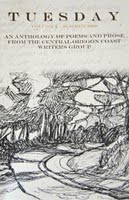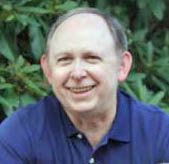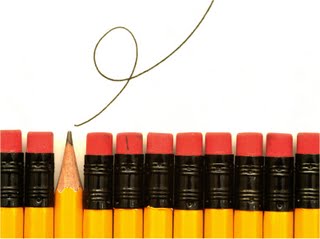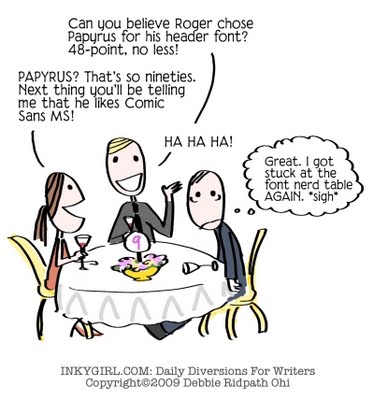Lost & Found
Sometimes a book keeps coming back. You read it once, love it, pass it on or set it aside. Years later, it resurfaces on your friend's kitchen counter or in the doctor's office. You are flushed with memory and love. You invite it in, hope that it holds the same allure. Fifteen years ago, in a season of serious illness, crushing love and profound sadness, I found solace in a beautiful book passage. I made copies, pasted the words in my journal and read them again and again. I wrapped myself in the comfort of clarity, if even for just moments at a time. Last week, I loaded up for winter reading. As daylight wanes my reading time lengthens. At the used bookstore in town (Mari's Books, a closet-size shop packed with unexpected gems) I filled my arms with new material. Just before leaving, I spotted the book that made me feel less alone so many years ago. I embraced the book like an old friend, dashed home, pawed through pages and found my favorite passage once again. Tears You never know what may cause them. The sight of the Atlantic Ocean can do it, or a piece of music, or a face you’ve never seen before. A pair of somebody’s old shoes can do it. Almost any movie made before the great sadness that came over the world after the Second World War, a horse cantering across a meadow, the high school basketball team running out onto the gym floor at the start of a game. You can never be sure. But of this you can be sure. Whenever you find tears in your eyes, especially unexpected tears, it is well to pay the closest attention. They are not only telling you something about the secret of who you are, but more often than not God is speaking to you through them of the mystery of where you have come from and is summoning you to where, if your soul is to be saved, you should go next.
Like, totally, whatever, you know?
Today's entertainment courtesy of Taylor Mali.
So, what do you write?
From cocktail parties to client meetings, the question is inevitable: What do you do? followed by, What do you write?
I always fumble for an answer. Am I a journalist? a freelance writer? publicist? poet? instructor?
I am all of these, in succession and all at once. But “I’m a writer/marketing professional/instructor . . . ” is an unwieldy response that is returned with wrinkles of doubt and a swift walk away from the babbling woman who lacks a sense of self.
I am a former newspaper reporter and editor, and I run a marketing communications firm that promotes businesses and organizations. I am a poet, published in journals and books. I work with youth, leading writing groups and classes. I am an occasional travel writer. I write ad copy for agencies. To add to the confusion, the other evening I was introduced as a blogger.
It gets too much to explain. This writer’s role is full and assorted. Most writers-for-hire (which sounds crass and commercial but does make a point) juggle a variety of clients, topics and titles.
So what do you call the writer who has not written a best-selling novel (and has no such plans) but still uses words to explain, ignite, assist and inspire?
At WordCount, Michelle Rafter proposes the end of “freelance writer” in favor of “journalist entrepreneur.” She’s got a point and has sparked a spirited conversation.
Meanwhile, I’m still sorting myself out. As a communicator seeking definition, I am my most difficult assignment.
Why I Write
To shift the structure of a sentence alters the meaning of that sentence, as definitely and inflexibly as the position of a camera alters the meaning of the object photographed...The arrangement of the words matters, and the arrangement you want can be found in the picture in your mind...The picture tells you how to arrange the words and the arrangement of the words tells you, or tells me, what's going on in the picture.
— Joan Didion, from Why I Write (New York Times, 1976)
Poem as prayer
My neighbor is the poet laureate of her church, St. Luke’s By the Sea Episcopal Church. Just the name makes me smile. By the sea. How idyllic. Indeed, it is a small and unassuming church situated along the road traversing the Pacific Ocean. I love that poetry is part of the program. Poetry as spiritual practice in which all art is holy, in which holy means reverent, means concentrated appreciation, means meditation on life. While my neighbor-friend is not a poet, she has a fierce appreciation for poetry. Together, she and the priest choose works for each service. They aren’t necessarily religious poems, she notes, but offer a range of cultures and perspectives, from Sufi poet Hafiz to nature-focused Mary Oliver. After the service, the congregation is hearty with praise. “The best part,” she says, “is that people really appreciate the poems, people who may not read poetry on their own.” And maybe, without knowing, they are thankful for the gift of prayer delivered in a poem.
Scattered and satisfied




Whatcha reading? I've been in a book frenzy, poring through a mix of fiction, mystery and poetry. It's a scattered but satisfying book list.
After the rain
I wanted to lose myself in books. Because the day began with rain, I felt no guilt in this retreat. But then the sun blazed through the clouds and it became difficult to justify my languor.
Writer Amy Krouse Rosenthal knows this feeling, too:
Rainy Day
Rain is your pass to stay inside, to retreat. It’s cozy and safe, hanging out on this side of the gray. But then the sun comes out in the afternoon, and there’s disappointment, even fear, because the world will now resume, and it expects your participation. People will get dressed and leave their houses and go places and do things. Stepping out into the big, whirling, jarringly sunny world — a world that just a few minutes was so confined and still and soft and understated, and refreshingly gloomy — seems overwhelming.
— from Encyclopedia of an Ordinary Life
House of words

Submission Season
It’s autumn, officially.
Unofficially, it’s submission season. This time each year literary journals open their gates to accept a flood of poems and stories from hopeful writers.
It’s the best of times (publication!) and the most trying of times (rejection!). Lots of hurry, lots of wait.
I like poet Bruce Cohen’s take on the submission process. It’s funny, telling and true:
I wish I could tap together my ruby red L.L. Bean slippers and post questions to a Wizard of Oz Poetry Editor so I could unravel the esoteric truths and mysteries about what factors, what esthetics, he really considers when deciding whether or not to accept my poems, what the deal breakers are. . . .
Read the full essay (from Rattle, Spring 2009) here.
150 books
Featuring a mix of established and emerging writers, the list is an impressive show of poetic range. Poetry, it seems, is family-friendly, with blood and love lines threading the directory: father and son William and Kim Stafford; brothers Matthew and Michael Dickman; and husband and wife Ralph Salisbury and Ingrid Wendt.
It's a powerful endeavor, both creating the roster and reading the books, and I'm happy to recognize some of my favorites (Toluca Street by Maxine Scates; Here, Bullet by Brian Turner), and to add the others to my growing list of must-reads.
How about you? Have you read all 150? What are your favorites? Are there missing teeth in this ambitious compilation? I'm eager to know what you think.
Words drop away
Some people say that the best stories have no words. . . . It is true that words drop away, and that the important things are often left unsaid. The important things are learned in faces, in gestures, not in our locked tongues. The true things are too big or too small, or in any case always the wrong size to fit the template called language.I know that. But I know something else, too . . . Turn down the daily noise and at first there is the relief of silence. And then, very quietly, as quiet as light, meaning returns. Words are the part of silence that can be spoken.
— from Lighthousekeeping, a novel by Jeanette Winterson
aggregate
A recent news-feature in the Oregonian has stayed with me for days. I don't usually care for first-person news stories (too much reporter, not enough story) but in a piece about emergency food pantries, writer Inara Verzemnieks poetically replaced data with humanity to deftly capture the core of ache:
As I restock bags of beans, I can hear her voice, raw and sustained, outside the door, wondering what she will do now, and I think about how at certain times in our lives, it's the aggregate of little things that threaten to crush us. But that also means, as trite as it sounds, it's an aggregate of little things that might also carry us through.
Read the full story here.
And the winner is . . .
 Many thanks to those who entered the drawing to win Catching the Limit by Mark Thalman. Entries arrived via blog comments and email pleas. From a blind drawing, we are pleased to announce the winner is . . . .
Many thanks to those who entered the drawing to win Catching the Limit by Mark Thalman. Entries arrived via blog comments and email pleas. From a blind drawing, we are pleased to announce the winner is . . . .
Jerry Luger of Corvallis, Oregon.
Thanks to everyone for tuning in, reading on, and taking part. Get your copy of Catching the Limit at www.markthalman.com. Or urge your local library to purchase a copy so even more readers can enjoy the poems.
500 words
Morning Pages
Timed Writing
500 Words
It’s all the same. All attempts to provide some structure and productivity to creativity.
At Inkygirl, Debbie Ridpath Ohi offers a word-count challenge. I balked at first.
500 words. Do I really need a gimmick to get me to write? Do I really need a regime, a routine, an edict to create?
As a writer, I shouldn’t need structure or rules to make me produce. If I’m a writer, I will write. Do painters say, I must paint for 10 minutes today. Or I have a painting schedule ?
As a writer, do I really need rules and schedules?
Yes, sadly, yes.
Because, unlike painters, dancers and others artists, I avoid what I love. I avoid writing even when writing is what I love most.
It’s perverse, and over the years I’ve filled days and journals writing too much about not writing.
There’s no shortage of get-to-it books: The Artist’s Way, The War of Art, Writing the Life Poetic, and scores of online workshops and retreats.
They are good and helpful and I always feel grateful for the boost. The trouble is the writer-high is too darn short. I fall back and away. Like my morning jog, it never feels easy.
I think it will. Every morning I run (well, a slow jog, really), I expect to feel better, go faster, have more endurance. But everyday I am just grateful to get through it. As I slog to the end, I feel a buzz of accomplishment and that’s what gets me going again the next morning.
Here's the kernel of truth stuck in my stubborn back molar: Writing is an exercise. Like my jogging, writing may never get easier but my creative muscles do get tuned and ready each time I show up. And the sense of accomplishment does always arrive at the end.
500 words. Yes! I showed up. I wrote.
It’s a routine. A schedule. A commitment. And it keeps me going.
How about you?
Writer Revealed - Mark Thalman
 WIN this book!
WIN this book!
Scroll down to enter.
Welcome to the second installment of Writer Revealed, an occasional series featuring interviews with writers who intrigue and inspire.
An English teacher for 26 years, Mark Thalman has an impressive body of work as a Poet-in-the-Schools, an assistant poetry editor for Northwest Review, and a board member of the Portland Poetry Festival. His book of poems was published this summer. (Win a free copy! See details below). He was born and raised in Eugene, Oregon and now lives in Forest Grove, Oregon.
 many writers, it’s difficult finding a publisher or winning a contest. This manuscript has been a semi-finalist for the Walt Whitman Award and a few other contests. Four years ago, it was selected to be part of Bedbug Press – Fairweather Books, Northwest Poetry Series.
many writers, it’s difficult finding a publisher or winning a contest. This manuscript has been a semi-finalist for the Walt Whitman Award and a few other contests. Four years ago, it was selected to be part of Bedbug Press – Fairweather Books, Northwest Poetry Series. Why is Catching the Limit dedicated to your parents and grandparents?
My parents were always very supportive and positive about getting a good education. When I was growing up, they gave me a lot of opportunities: snow skiing, playing golf, fishing, guitar lessons, taking us on trips around Oregon. My mom read Tom Sawyer and Huckleberry Finn to me when I was about five. She loved taking my sister and me to the public library to check out books. My grandparents, who were great story tellers, used to own the Willamette Pass Ski Area and had a cabin at Odell Lake. That’s where many of the poems in the second section of the book take place.
Please tell us about your writing process.
I write like an artist paints. (If you visit my website, you can also see some of my paintings.) Some poems may take a few months to finish, others have taken 16 years. A lot of times, a poem will be almost finished, but I am waiting to learn or discover what it needs to give it that finishing touch. Some poems go through a lot of revisions, others don’t. If I can write a few good lines each time I sit down, I’m satisfied.
What is your writing style?
I write lyrical poetry. Each word has its own music, and a poem has to sound right and have a presence on the page. I like to have internal rhymes, but not hard rhymes at the end a line. I love good similes and metaphors. It’s probably just easier to read you a few lines from “North Umpqua, Summer Run” so you get the idea.
In a smooth flash of motion,
deft as a blade, the fish strikes
and the surface explodes.
Trembling violently in air,
amid spray and foam,
the steelhead blazes like a mirror catching sun,
falls back, extinguishing the fire,
only to lift again,
a flame out of water.
Your poems have such a rich sense of landscape and place – specifically Oregon. Do you consider yourself a regional poet, a nature poet?
Someone said that all writing in some sense is regional, but when I sit down to write, I don’t think of myself as a regional or nature poet. Catching the Limit is about the Oregon Coast, the Willamette Valley, and the Cascades. Sure, I am interested in how a whole forest continually renews itself as in my poem, “In the Silence of a Pine Cone Falling”, or how different trees decompose in “Blowdown." There is a lot of nature in the book, but hopefully the themes and the “human condition” will transcend any regional boundaries.
Your work wonderfully combines your specific experiences/observations with universal understanding. How do you do this, and is it intentional?
(Laughs briefly and good naturedly.) Sometimes “art” happens! I can only think of a couple of poems where it is intentional. Such as the last line in “On the Dock at Evening” where the narrator says, “I have lived my life for just this moment.” That line is a response to James Wright’s well known poem “Lying in a Hammock at William Duffy’s Farm . . .” where his narrator claims, “I have wasted my life.”
Born in Oregon
Some days I am a fir. Squirrels eat from my limbs.
Other days I am a rhododendron. My genes are coded
as cuneiform. Toadstools and moss grow in the caverns
of my lungs. I am accustomed to the sky,
gray as wax paper.
What is your favorite poem in Catching the Limit and why?
I don’t have a favorite. It depends on my mood. My poems are like children, and I try to treat them equally. I like it when people tell me what their favorite is. Everyone has their own experiences and perceptions they bring to a poem.
Do you have a tight group of poet friends? And how would you suggest others cultivate a writing network?
Yes, I have a group of poet friends, most who I’ve known for a long time. However, people have become so spread out, its really the Internet that makes staying in touch possible. Over the years, my wife, Carole, has become one of my best editors, because she’s seen so much of my work and understands what I am trying to do. As far as cultivating a writing network, if a person attends writing workshops, they might find some like minded poets who want to start their own poetry group.
Where can we get your book?
Presently, Catching the Limit, can be ordered from my website, markthalman.com. Unfortunately, Tony Gorsline, my publisher, passed away this summer from cancer. With Tony’s passing, Bedbug Press – Fairweather Books did not survive, so I don’t have any small press distribution at this time. However, I will be giving some readings at bookstores, and I’ll be signing books after my reading at Wordstock (in Portland). In a few months, you should be able to find it on Amazon.com. However, if you purchase it from my site, you will always get an autographed copy, and I’ll ship it to you right away.
See Mark Thalman this fall!
• Looking Glass Bookstore
Portland, Oregon
Beyond Forgetting - Poetry Reading
Saturday, September 19, 2009, at 3pm
A reading featuring: Tess Gallagher, Holly Hughes, Alice Derry, Joseph Green, Kake Huck, Judith Montgomery, Drew Myron, Paulann Peterson, and Mark Thalman.
• Wordstock
Portland, Oregon
Oregon Convention Center
Sunday, October 11, 2009 at 3pm
* WIN a copy of Catching the Limit!
It's easy. To enter, simply write a comment below, or send an email to dcm@drewmyron.com. Provide your name and contact information. A winner will be selected at random from the entries. But hurry! All entries must be received by September 12, 2009. The lucky-ducky-limitless winner will be announced here.
Font nerds
Comic courtesy of Debbie Ridpath Ohi, a Toronto-based freelance writer, illustrator and the creator of InkyGirl.com
Pick me!
 Writing White Papers has announced its 4th annual Best Blogs for Writers contest.
Writing White Papers has announced its 4th annual Best Blogs for Writers contest.
To this, I say: Pick me! Pick me!
Reason 1: Few things are more self-serving than a blog. I’ll set aside false humility and admit this blogosphere is deep and dark and I could use a thin slant of light.
Reason 2: Let’s show ‘em a writing blog that blends art and words while encouraging creative leaps.
Reason 3: Is anyone out there? Your vote could be the balm to allay fears that I am all alone in this literary life.
Vote now! It's easy, and operators (or blog masters?) are standing by, eager to accept your opinion.
To vote, visit Writing White Paper's nominations page. Entries must include:
Blog name: Off the Page by Drew Myron
URL: http://drewmyron.com/main.htm
A brief explanation of why you read this blog.
Entries are due Sept. 11, 2009.
Thank you!
Life, not so ordinary
My post office box — always a source of pleasure — was especially delightful today. Two books arrived! Both funny, tender, light but not vapid. (As a note, I’ve been on a library kick lately but these two are purchase-worthy):
Encyclopedia of an Ordinary Life by Amy Krouse Rosenthal
Just when I can’t take another my-life-is-so-profound memoir, I find this treasure that defies categorization. This 40ish author is clever, without being an ironic mocker, and tender, without rainbows and kittens. It helps that she begins with this disclaimer:
I have not survived against all odds.
I have not lived to tell.
I have not witnessed the extraordinary.
This is my story.
As usual, I’m late to the party. Encyclopedia was published in 2005 and has earned loads of accolades and attention. She’s now deep into another creative project, with yet another twist: The Beckoning of Lovely, a film being made by 200 strangers. Click below to view video.
How Not to Act Old by Pamela Redmond Satran
This book, and its companion blog, is a hoot. After a quick read, it’s clear I'm exhibiting sure signs of geezerhood. Evidence of age:
- using words like hoot and geezer
- leaving voice messages
- talking loudly into my cellphone
- still watching MASH and Seinfeld
The author is laugh-out-loud funny, offering 185 witty and wry directions. Published just this month, the book zoomed to the New York Times bestseller list in its first week, proving there are a lot of old people desperate for disguise.
Young readers respond
 Book suggestions abound! Several (young-ish) friends and family members have chimed in with their faves:
Book suggestions abound! Several (young-ish) friends and family members have chimed in with their faves:
• Inkheart, by Cornelia Funke, was suggested by my bright young friend Katy, age 9.
• The Phantom Tollbooth, by Norton Juster, got the thumbs up from my book-loving niece Kimberly, age 11.
• Mad Libs. Oh, how I love these fun word lessons cloaked in silly fill-in-the-blank stories.
• A Single Shard, by Linda Sue Park, was recommended by dedicated reader/writer Eliza.
Got any more good reads? What are your sons, daughters, nieces, nephews, friends and neighbors reading? What have I missed? Keep those suggestions coming!









